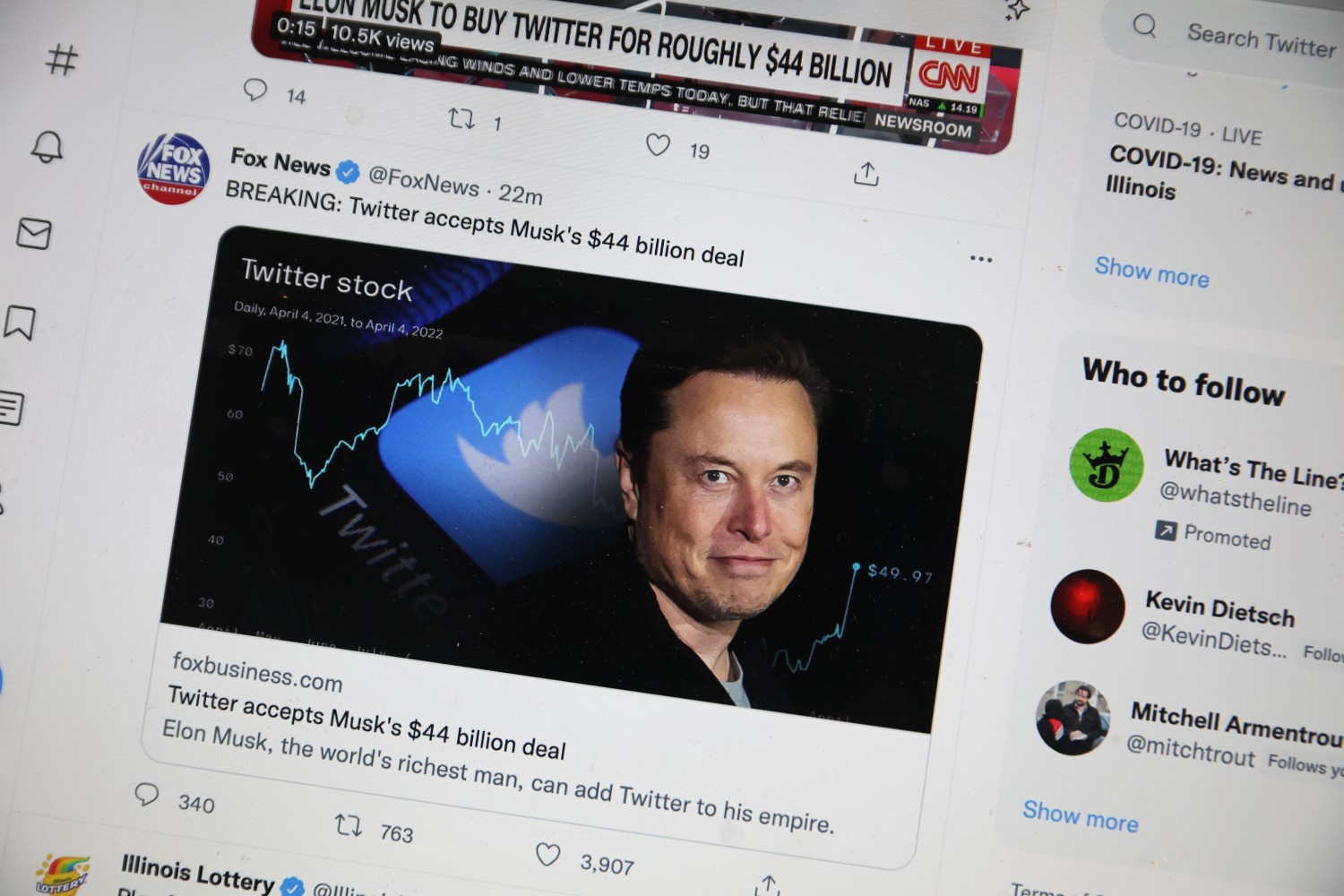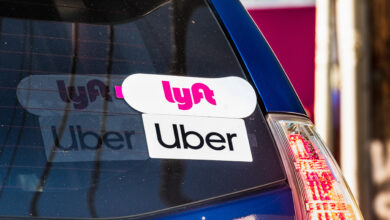Musk Could Possibly Renegotiate Twitter Deal Based on Spam Numbers

On April 25, Elon Musk and Twitter announced that they had come to a deal for the world’s richest man to buy the social media platform and take it private. The deal would take months to complete, and many hailed the idea that Musk might rid the platform of believed censorship.
Nearly one month later, Twitter shares are at their lowest price since the announcement of the deal, $46.75. On April 1, Twitter shares were $39.31. Musk was set to purchase the company at a price of $54.20 per stock. With the price dropping, implied probability cast doubt that Musk will buy the stock at the agreed-upon price. Some investors, including Hindenburg Research, are saying that Musk could try to negotiate a lower deal based on the decreased stock price.
Read More »Twitter is among other technology stocks that are plunging recently. Economists attribute this drop to concerns about inflation and a possible economic slowdown.
However, Musk is not only a savvy businessman, but he is also smart in his investments. This leads many to believe he will attempt a renegotiation of the purchase price of the stock.
First, Musk is considered the world’s richest man, having a net worth of nearly $240 billion (according to Forbes). It’s important to remember that the bulk of his wealth is tied up in his company, Tesla, the electric car maker.
Musk raised some capital along with his own assets to make the purchase of the social media platform that he has described as the public town square. He sold $8.5 billion of his own Tesla stock, then took out a $12.5 billion margin loan with Tesla stock as security. Later, however, Musk would reduce that loan amount after bringing in investors. (The loan amount now stands at $6.25 billion.)
In a regulatory finding, Musk stated that he could bring in other investors in the future.
One reason so many believe that Musk might be inclined to negotiate a new purchase price of Twitter is a drop in Tesla’s stock price. Tesla shares have dropped by the sizable amount of twenty-seven percent, and Musk revealed his stake in the company is “driven partly by concerns (Musk) may have to sell more shares” in order to close the deal on the purchase of Twitter. Musk has said, however, he isn’t concerned about the economics of buying Twitter.
Yet, his co-investors and his investors at Tesla could be the driving force that pushes Musk to renegotiate the Twitter price. If Musk can renegotiate, the pressure on Tesla stock will decrease. Plus, co-investors in the Twitter deal may put pressure on Musk to renegotiate so that they aren’t overpaying for Twitter shares.
Musk could renegotiate in a number of ways. First, he could threaten to walk away from the deal unless Twitter’s board of directors agrees to come back to the table for more negotiations. Although Musk is currently bound by a $1 billion fee if he decides to back out of the acquisition deal, Twitter could actually lose should they refuse to renegotiate. The company would likely have to sue Musk in order to collect on the fee, plus they would have to pay legal fees to use that strategy to force him to go along with the deal.
Musk would not be the first business entity to renegotiate a purchase price in recent history. During the pandemic, French company LVMH Moët Hennessy Louis Vuitton (the parent company of Louis Vuitton and Givenchy) was able to renegotiate with Tiffany & Co. LVMH was able to slice the original acquisition price to $15.8 billion. An American company, Simon Property Group (the largest mall operating company in the country), was able to slash its purchase price of Taubman Centers by eighteen percent (the ending purchase price was $2.65 billion).
So, given the unpredictable nature of Musk’s business dealings, the possibility of renegotiating the price of Twitter can’t be counted out. In addition, his investors in both Tesla and his co-investors in the Twitter acquisition may put some financial pressure on Musk to go back to the negotiating table with the Twitter board.
At the same time, it’s possible that renegotiating a deal could completely backfire on Musk, should he decide to do so. There is no one negotiation strategy that would guarantee Musk’s success when negotiating, and renegotiating could end up costing Musk more money than he’s already pledged.
Musk would have to convince Twitter – and the general public – that he really is going to walk away from the deal. There are those who have come to expect the unexpected from Musk, so the company could quite literally call his bluff on the matter.
Next, there are some legal hurdles that could hold Musk to the original agreement. One card that Twitter could play would be a “specific performance clause” which the company could use to force Musk to legally complete the acquisition.
However, that same clause could be the very reason that Musk could renegotiate the Twitter deal. Last week, attorneys contacted Musk after he tweeted about the amount of spam accounts or bots on Twitter. Regulatory filings on behalf of Twitter have shown this to be closer to ten or twenty percent. Musk could use this very discrepancy to his benefit when negotiating a new purchase price, should he choose to do so.
At the same time, if Musk does threaten to back away and Twitter does sue him, there is precedent which could force him to at least pay damages if Musk decide not to follow through with the acquisition. Medical technology company Channel Medsystems, Inc sued Boston Scientific Corp in 2019 when Boston threatened to walk away from the acquisition agreement. A judge ruled that the deal was to be completed; eventually, Channel Medsystems and Boston Scientific Corp. would come to an undisclosed financial settlement.
The agreement signed by Musk details that he cannot change his mind regarding the acquisition “because of a deteriorating business environment.” That includes the price of shares dropping or a decreased interest in the amount of advertising.
Musk decided to waive his “right to carry out due diligence” regarding the Twitter acquisition in an effort to get Twitter’s board to “accept his best and final offer.” In other words, Musk won’t likely be able to argue in civil court that he was in any way financially misled by Twitter.
At the same time, one can never underestimate the shrewdness of Musk when it comes to business. Not only does Musk personally possess a keen preternatural business sense, he employs a plethora of advisors and attorneys who would apprise him of these issues. Musk could very well maneuver Twitter back to the negotiating table, walking away with an even better deal than the orginial.





